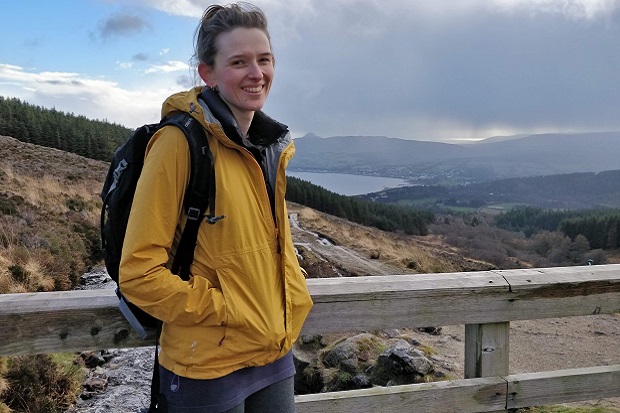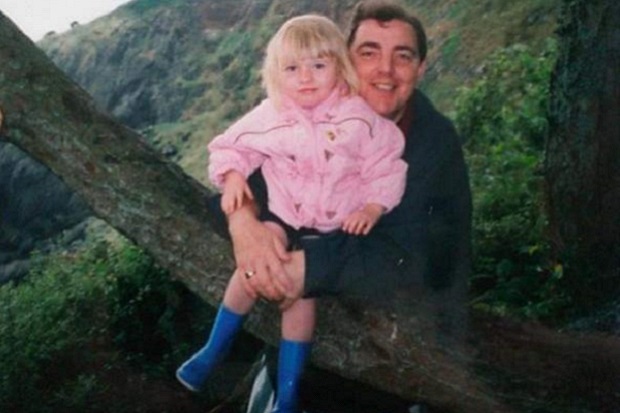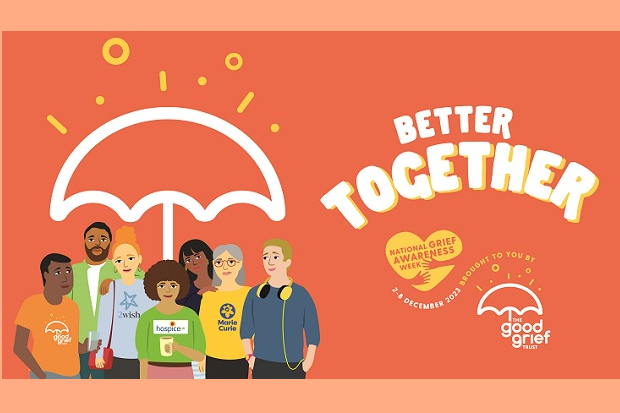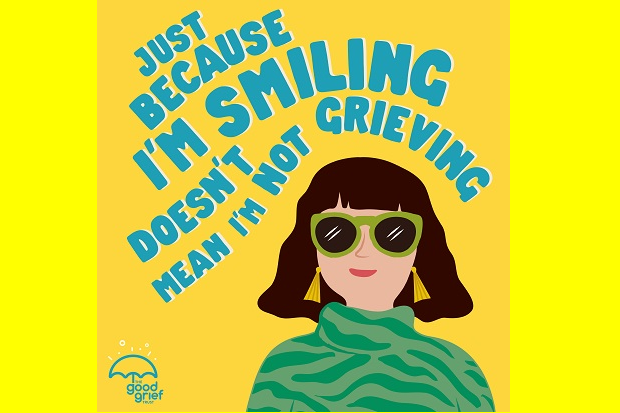
*Warning: potential triggering content – this blog talks about death and dealing with grief. *
In National Grief Awareness Week Katie Bishop shares her experience of being young and bereaved, as she aims to raise awareness of the lasting impact of grief while highlighting the support services available inside and outside of work.
Hi, I’m Katie, a 29-year-old environmental and sustainability specialist, working in Defra Digital Data and Technology. For me, 2023 marks ten years since I lost my Dad.
In recognition of ‘say their name’ campaigns, I want to tell you about my Dad. His name was Tony, and he lived his entire life in Bristol. Alongside being a devoted husband and Dad, he worked as a Civil Servant for over 30 years. My Dad loved music, volunteering as a Radio DJ with Bristol Children’s Hospital “Radio Lollipop” during the 1980’s. He was also very skilled at DIY, had a love for genealogy, and had a passion for collecting W. E Gladstone memorabilia (random I know!).
My experience of loss
On March 3rd, 2013, I was suddenly without my Dad, my Mum without her husband, my Nana without her son, my aunts without their brother. That day, Dad lost a lifelong battle with various health conditions and complications ultimately caused by kidney failure (which he suffered at a very young age), countless surgeries and years of renal dialysis that he had to endure just to stay alive. I can’t say his death wasn’t expected, given how ill he’d become, but that didn’t make it any easier.

I had an amazing relationship with my Dad, so losing him was devastating. He was the bravest person I’ll ever know, and the kindest, most loving parent. As his only child, he probably spoiled me a bit, but I think that’s because he never thought he’d get to be a parent, and it made him so happy.
I have so many wonderful memories of spending time with my Dad – the simple things, like trips to B&Q or garden centres, watching TV together, or visiting Bristol Zoo in the school holidays. I loved him, and every minute I spent with him.
Being young and bereaved – it’s difficult
Losing a parent is difficult at any age, but being eighteen was especially tough. You’re supposed to feel carefree, embarking on an adventure of your choosing. Instead, I was thrown into years of deep and painful grief which I carry with me today.
I went to university six months after losing my Dad – albeit near home so I could stay close to my Mum. Graduation was very difficult without him: one of the last things he learned was that I’d got a place at university. It would be one of many milestones in my life that I wouldn’t be able to share with him.
At the time, I felt that I “fell through the gaps”, in terms of getting support for my loss. I wasn’t officially a child anymore, but I didn’t feel like an adult either. I don’t recall hearing much about support services available – people didn’t really talk about it. I don’t think I got the chance to process my grief properly. It was an isolating, difficult period of my life because people didn’t know what to say or how to act – and neither did I.
However, more recently, I’ve been taking more direct actions to help process my grief. For example, I’ve been regularly seeing a psychotherapist, which has been hugely insightful – although it’s been difficult at times.
I’ve also found great support from shared communities, such as the Cross-Government Grief Café, which is open to all Civil Servants, and from my local ‘Let’s Talk about Loss’ Group. I’ve also found comfort in listening to podcasts such as Griefcast – the host, Cariad Lloyd, lost her dad when she was fifteen, so sadly we share something similar in common.

How can you help someone who is living with grief?
Everyone experiences grief differently, and that’s OK. For my Mum and I, one of our coping mechanisms is talking about my Dad regularly. I think this surprises people, who often tiptoe around the subject, perhaps for fear of upsetting us.
Or maybe because we lost him ten years ago, they think we should be ‘over it’ by now. Neither is true – the thought of never talking about my Dad, not being able to share how incredible he was, is what upsets me. I love to say his name, to talk about the things he did, the things he liked, to share the stories I have.
My partner Nick is especially amazing in this regard – he’ll listen to my Mum and I talk about my Dad for as long as we need to. One of the most valuable things I’ve learned in recent years is that just because I’ve lost someone, doesn’t mean my relationship with them no longer exists. The relationship just adopts a different form. My Dad is still my Dad, and a huge part of my life, regardless of whether he’s physically here.
People’s experiences of loss and bereavement vary because we are all unique and cope in different ways. Communication is key, you can help by asking people what they need or want (rather than making assumptions) and respecting their approach to managing grief. The Good Grief Trust have articulated some powerful messages about grief that resonate with me:
- “Just because I’m smiling doesn’t mean I’m not grieving” – the bereaved often hide their grief. They may look alright, but inside they could be struggling.
- “Say their name, I’m thinking about them anyway” – people are often afraid to mention the person’s name who has died – but it is generally the opposite. By saying their name and talking about them, you’re helping to keep their memory alive.
- “There’s no set length of time to grieve” – there is a myth that you ‘get over’ grief. That you ‘move on’. You don’t. You move forward with your grief, but you may be affected forever.
By sharing my own experience here, I hope to raise awareness around the lasting impact of grief, to try and break the taboo and help make grief an easier topic to discuss. I also hope that I’ve shared helpful advice for what you can say and do to help people (like me) who are living with grief.

In Defra we are fortunate that we have a range of support available to us, including Mental Health First Aiders, an Employee Assistance Programme, a Grief Support Exchange on our Viva (formerly Yammer) channel, and a Supporting Bereavement policy for individuals and their line managers.
Services and resources that you may find helpful if you are living with grief include:
- Let’s Talk about Loss – supporting young people aged 18-35 who are bereaved, running regular meet ups across the UK and providing a safe space for people to talk about grief.
- Good Grief Trust – resources for people experiencing bereavement, offering comfort, practical support and the knowledge they are not alone.
- Griefcast – a podcast that examines the human experience of grief and loss hosted by comedian Cariad Lloyd.
- Cross-Government Grief Café – a safe space to connect with others grieving. Grief Café also runs regular information sessions on various topics related to grief.
Katie Bishop is a Digital Sustainability Lead in Defra Digital Data and Technology.
National Grief Awareness Week aims to raise awareness of the lasting impact of grief. The theme for this year is about connecting with our communities through shared events.
Check out our LinkedIn page for all the latest blog posts and job openings. While you’re there, why not give us a follow.
